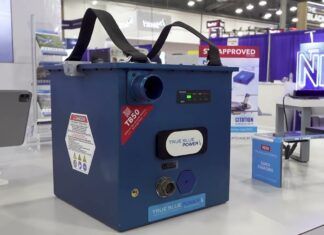
Its a common complaint in the aviation biz: You spend a ton of money on your airplane-say for an engine, radios, paint or some such-and the job goes sour. Either you don’t like the results or what was supposed to work doesnt.
In the retail industry, redress is simple and usually instantaneous: Take the stuff back and get a refund. Sad as it may be, it doesnt work that way in the airplane business. Although customers enjoy some protection from warranties, warranty performance is clearly limited and in most circumstances, its largely at the pleasure of the manufacturer. The better companies-the David Clarks, the Mattitucks and the Penn Yan Aeros-routinely perform beyond the stated warranty and have the customer loyalty to prove it.
In our experience, warranty performance in the GA industry is somewhat spotty but generally good. Most manufacturers do what they say theyll do and the angry letters never reach our office. Some companies fall short while others go so far beyond the call that we wonder how they remain in business.
This story is about the second kind of company, the one that endures unreasonable customer abuse yet still delivers far beyond the stated warranty. It should also serve as a lesson in how not to buy avionics.
Up front, we’ll confess were doing something we usually don’t: We have disguised the names to protect the innocent and the idiotic and to protect what we consider to be a reputable company from a landslide of buyers looking for an easy mark. Fair is fair, after all.
Over The Counter
The sad episode began with a fax from a California reader, the owner of a Piper Seneca, who had recently installed a new GPS in his aircraft. His angry letter to us detailed persistent problems with the unit. It failed to initialize properly and mysteriously shut down in flight for no apparent reason.
Following its standard policy, the avionics maker-trust us, youd know the name-provided a loaner and had the customer send his troublesome GPS in for diagnosis and repair, which revealed no faults with the navigator. It was returned to the aircraft owner for re-installation.
Still not satisfied, the customer found more problems with the navigator and when he pushed the issue with the manufacturer, he reportedly was told that yes, that particular model had experienced problems with bad circuits.
What the reader failed to mention to us in his letter is that the GPS had been bought not from an authorized dealer, but over the counter from a supplier who sells the parts and pieces but doesnt install what it sells. The owner then took the box to another shop-also not an authorized dealer of the manufacturer-and worked out an arrangement to have it installed.
Is there anything wrong with this? After all, the poor owner was just trying to save himself a few bucks on a GPS. Is that such a sin? No, it isn’t, but if you take this approach, youd better have a high tolerance for grief.
Sell It, Support It
Ever notice how the avionics ads in Trade-A-Plane often say call for our special installed price or that a discount house carries the full line of products from one company but not the panel mounts made by another?
There’s a reason for this. For certain products, manufacturers such as Garmin, Bendix/King and Apollo/UPSAT exercise tight reign on who sells their IFR panel mount gear and at what prices.
To a degree, its a form of price control on the market but the real reason is that by limiting sales to authorized dealers who also install, the manufacturers exercise some control-however limited-over that which determines how we’ll the boxes work: Installation procedures.
All the in-house quality control in the world is useless if the shop forces the tray into the panel with a crowbar or crimps the power and antenna leads. The manufacturers know by experience that most headaches arise from faulty installations.
This doesnt necessarily mean that over-the-counter sales are universally bad or that you cant reasonably expect to save a few bucks on a used or reconditioned GPS.
But if you take such a box to a shop unaffiliated with the manufacturer, warranty support-or support of any kind-will be harder to come by. Were not saying the manufacturers wont support equipment sold and installed in this fashion, but you’ll have an easier time of it with an authorized shop that has a vested interest in supporting the brand.
If you get a sweet deal on a used box or even a new one sold over the counter, our advice is to contact the installing shop before buying it. In the case of used equipment, most reputable shops will warrant their installation work as though the boxes were new. If the equipment is out of warranty, however, youre on your own.
Bringing a new box youve bought elsewhere to another shop for installation wont elicit cheers from the shop owner. Keep in mind that shops make a portion of their revenue on sales mark-up; thats what pays the light bill and keeps them on duty when you arrive in a panic on a Saturday morning with your PTT shorted to ground and two weeks of vacation in jeopardy.
When you buy the box elsewhere, the shop will get its pound of flesh one way or another and chances are, you wont have saved much money and you’ll only succeed in souring what could have been a warm and fuzzy after-the-sale relationship.
Advice: Before buying elsewhere, give the shop a chance to bid on the box or otherwise work a deal in your mutual favor. Doing so may return long-term benefits worth far more than a few bucks saved on an over-the-counter avionics purchase.
Back to Our Story
Dissatisfied with both the shop and the manufacturer, and after several circuits to and from the shop for fixes, our aggrieved reader went for broke: He demanded not a new replacement unit-which we think wouldnt have been unreasonable-but a new top-of-the-line GPS unit from the same manufacturer.
Price difference: About $4000, not including installation. The readers reasoning was that he was due that upgrade in exchange for his aircraft downtime and inconvenience.
Here the stories diverge. The reader claimed he agreed to pay any difference in price while the manufacturer insisted the customer made no such offer. But the manufacturer did attempt to convince the customer to take his aircraft to an authorized shop to address what appeared to be problems with the installation. The customer declined the offer.
Then things got especially bizarre. The company offered to upgrade the customer to the top-of-the-line box and install it at an authorized dealer, with the tab being picked up entirely by the manufacturer. Following this offer, the customer agreed to work with a dealer. (For such a sweet deal, who wouldnt?)
Because he wore down the company with incessant complaints, the customer essentially earned himself a $5000 free ride. Nice deal if you can get it but whats the reasonable and fair expectation here?
In the face of what he claimed were persistent failures, was the customer due a new replacement unit, equivalent to the old? Yes, but only if he agreed to have an authorized shop check the installation first.
The way we see it, the manufacturer is under no obligation to repeatedly perform under warranty if its denied the opportunity to assure quality control through an authorized shop. Furthermore, some manufacturers wont honor a warranty on IFR avionics sold over the counter, period, for the very reasons this customer had trouble with his GPS.
Does the customer have the right to return for refund a box thats defective or that he just doesnt like, for any reason? Probably not. The avionics business is not like a retail department store and a $10,000 GPS navigator is hardly the equivalent of a $30 shirt.
Push the issue and the most you can expect is to eat the installation charge and return the equipment for a substantial re-stocking charge. The better way to do business, we think, is to work out a deal with both the shop and the manufacturer to either replace a defective unit or exchange it for something better. You should expect to pay some or all of the difference in cost, if any.
In the interests of customer satisfaction, we wouldnt be surprised if a manufacturer offered an upgraded box at near cost, although youd be on the hook-reasonably, we think-for any additional installation costs for the new equipment.
Although the company had given the customer bend-over-backwards treatment in this case, he obviously still felt slighted enough to send us a letter of complaint about the manufacturers defective products and wondered if we had heard about other such examples, either the unit in question or the company. (No, we havent and believe us, if there were a widespread problem, we would hear about it.)
When we reviewed the details of the complaint with the manufacturer-as we always do-and were told of the freebies thrown the customers way, our reaction was this: What were you thinking? A company spokesman had this to say: We reserve the right to satisfy a customer on a case-by-case basis. He added that the company also reserves the right not to repeat this deal, a policy we have no problem with, frankly.
Conclusion
While we cheer when any customer gets a good deal on a product or service, we find this episode to be an embarrassing example of how badly owners can behave when they don’t get their way.
On balance, it does more damage to business-customer relations than any number of defective products ever could. The unfortunate truth is that when the next customer comes along with a legitimate beef, both the shop and the manufacturer might recall what happened in this case and be far less inclined toward a fair let alone a generous solution.
Nobody benefits from that.


